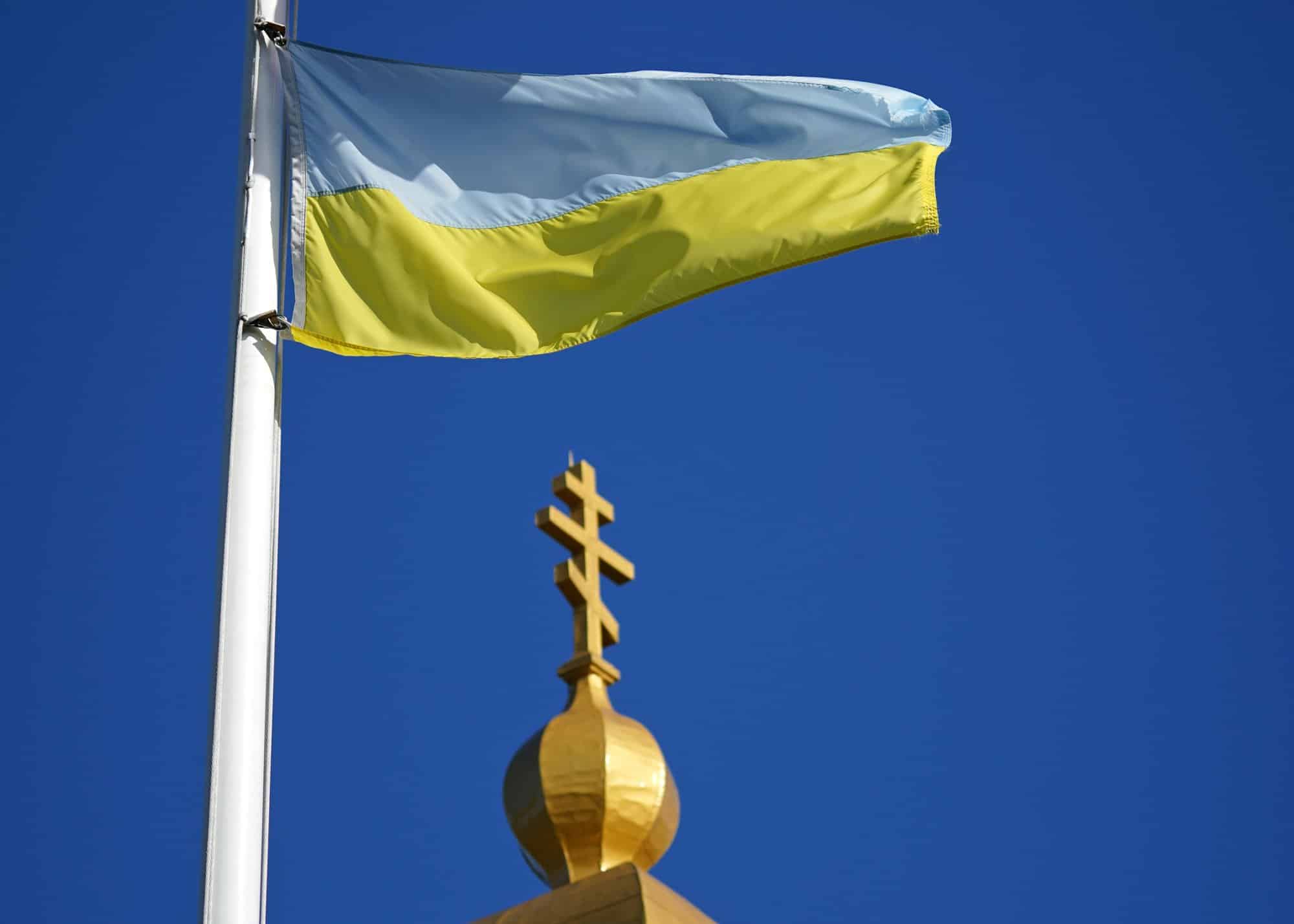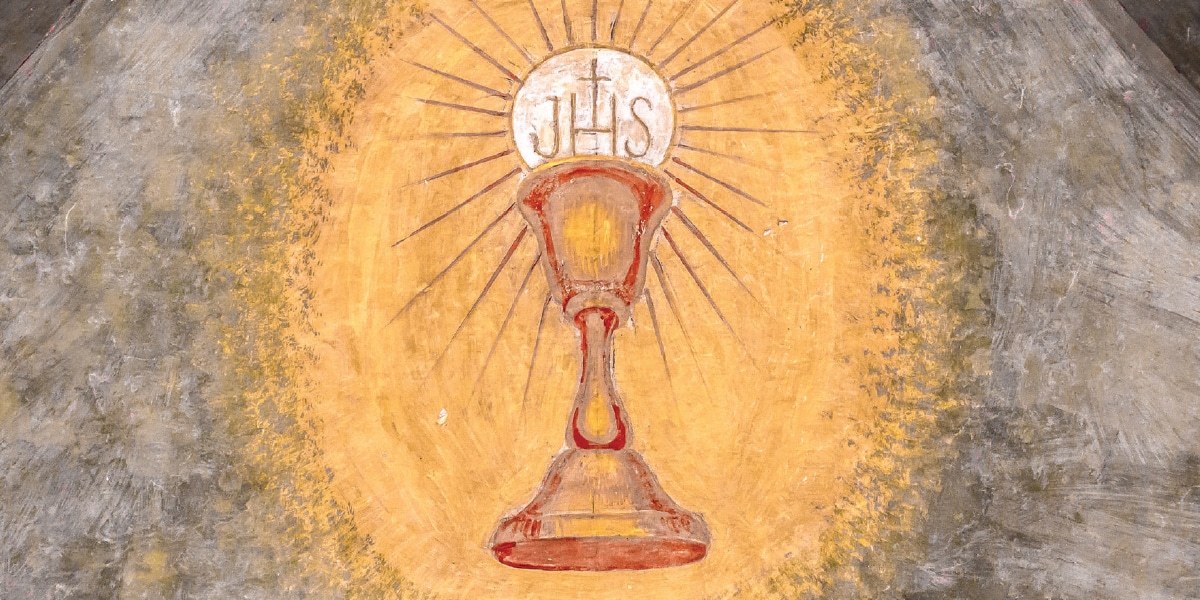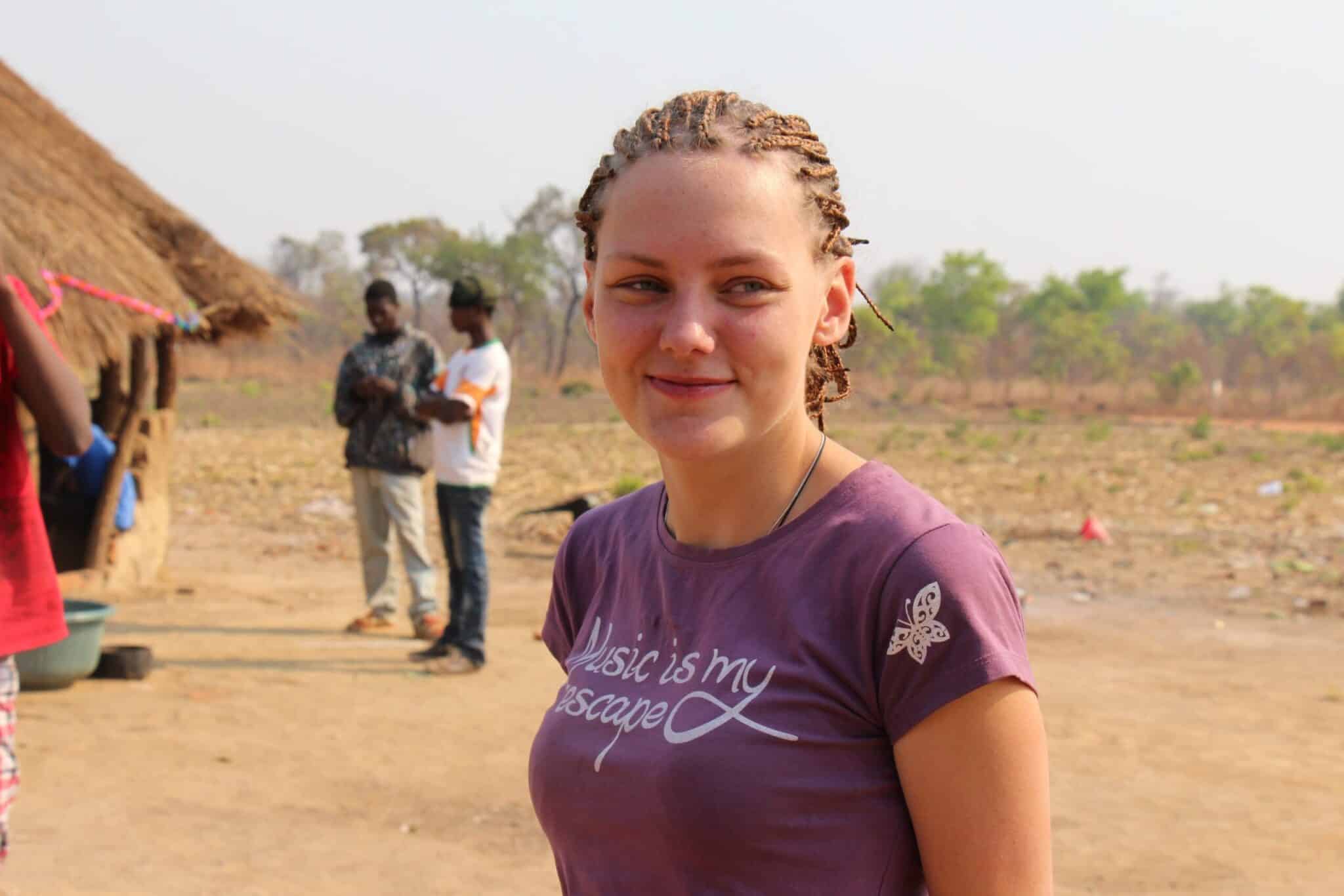It’s easy to view saints as distant, historical figures that we can only try to imitate. Pope Francis encourages us to consider as examples the quietly holy people in our lives who inspire us to a deeper spiritual life.
Do you live next door to a saint? Pope Francis thinks you do. And he thinks maybe your neighbor does too. Could your grandmother be a saint? What about your college adviser who encouraged you to follow your creative interests? Or your first boss who persuaded you that you had the skills necessary to apply for a new position in the company? Then there’s the person working two offices down the hall from you. Did it ever occur to you that he or she might be a saint?
Pope Francis takes the “cloud of witnesses” from Hebrews 12:10 far beyond what we normally think of as the “communion of saints.” In his latest exhortation, “Rejoice and Be Glad” (“Gaudete et Exsultate“), he writes: “These witnesses may include our own mothers, grandmothers, or other loved ones [cf. 2 Tm 1:5]. Their lives may not always have been perfect, yet even amid their faults and failings they kept moving forward and proved pleasing to the Lord” (3).
Notice he doesn’t say we need to be perfect to have a shot at sainthood. Nor does he give a list of rules and guidelines to follow. For Pope Francis, as it was for Jesus, it’s about continually moving toward our place in the kingdom of God. We are the living stones that make up that kingdom. It is through small steps and faithful love that we fulfill our destiny.
The title “Rejoice and Be Glad,” taken from the beatitudes, refers to the Gospel call to recognize the often unexpected and surprising ways that our lives help build up the kingdom. The beatitudes are as revolutionary today as they were at the time of Jesus. It’s not the movers and shakers of society who are blessed by God, but those who quietly and humbly seek out God’s will and put it into practice. The pope reminds us that this doesn’t mean we’re all called to be superheroes. We’re called to become saints in the very ordinariness of our human lives.
The pope writes: “I like to contemplate the holiness present in the patience of God’s people: in those parents who raise their children with immense love, in those men and women who work hard to support their families, in the sick, in elderly religious who never lose their smile. In their daily perseverance I see the holiness of the Church militant. Very often it is a holiness found in our next-door neighbors, those who, living in our midst, reflect God’s presence. We might call them ‘the middle class of holiness'” (7).
Meeting at the Crossroads of Life
We can all think of people who have made a significant difference in the major decisions and directions of our lives. It may or may not have seemed dramatic at the time, but looking back we can see that words of encouragement or admonition changed the path we were on and set us toward a new life.
Pope Francis suggests that these people, too, are part of our personal communion of saints: “Certainly the most decisive turning points in world history are substantially codetermined by souls whom no history book ever mentions. And we will only find out about those souls to whom we owe the decisive turning points in our personal lives on the day when all that is hidden is revealed” (8).
Sometimes we don’t have to wait until that final day. It’s good to take a few moments from time to time to look back at our lives and reflect on those turning points and the people who helped them happen. I think of the English professor I had during my freshman year of college who pushed me to realize I couldn’t coast through college the way I had in high school. I think of Molly, my roommate in graduate school, who told me that my singing voice was timid, not flat. This led to several delightful years singing in my parish choir. I think of the many people who listened with compassion through years of working through the ordinary problems of growing into independent adulthood.
For some people it might be advice about marriage and a family. For others it could be a daring change of career or the decision to enter religious life.
Inspiration, Not Imitation
One obstacle many people encounter when they hear this challenge to become holy is thinking they have to imitate the lives of the canonized saints. They mistake the particulars of another person’s life for those traits essential to holiness.
Martin Buber recounts this Hasidic tale: “A rabbi named Zusya died and went to stand before the judgment seat of God. As he waited for God to appear, he grew nervous thinking about his life and how little he had done. He began to imagine that God was going to ask him, ‘Why weren’t you Moses, or why weren’t you Solomon, or why weren’t you David?’ But when God appeared, the rabbi was surprised. God simply asked, ‘Why weren’t you Zusya?'”
It is in this spirit that Pope Francis reminds us God has a plan for each of us. He writes: “We should not grow discouraged before examples of holiness that appear unattainable. There are some testimonies that may prove helpful and inspiring, but that we are not meant to copy, for that could even lead us astray from the one specific path that the Lord has in mind for us. The important thing is that each believer discern his or her own path, that they bring out the very best of themselves, the most personal gifts that God has placed in their hearts [cf. 1 Cor 12:7], rather than hopelessly trying to imitate something not meant for them” (11).
This should excite and encourage us to give our all and to embrace that unique plan that God willed for each of us from eternity: ‘Before I formed you in the womb I knew you, and before you were born I consecrated you.'” Jeremiah 1:5
Mother Teresa told her admirers that instead of coming to Calcutta they should stay in their own homes and towns and do small things with great love. And St. Francis said to his brothers at the end of his life: “I have done what is mine to do. May Christ show you the work that is yours.”
While we all know people who are doing extraordinary things, Pope Francis reminds us that we can grow in holiness by living our daily lives well: “We are all called to be holy by living our lives with love and by bearing witness in everything we do, wherever we find ourselves. Are you called to the consecrated life? Be holy by living out your commitment with joy. Are you married? Be holy by loving and caring for your husband or wife, as Christ does for the Church. Do you work for a living? Be holy by laboring with integrity and skill in the service of your brothers and sisters. Are you a parent or grandparent? Be holy by patiently teaching the little ones how to follow Jesus. Are you in a position of authority? Be holy by working for the common good and renouncing personal gain” (14).
The Most Ordinary Path to Holiness
Few popes have been better than Pope Francis at putting his advice into concrete, ordinary examples. He continues to do this, writing: “This holiness to which the Lord calls you will grow through small gestures. Here is an example: A woman goes shopping, she meets a neighbor and they begin to speak, and the gossip starts. But she says in her heart: ‘No, I will not speak badly of anyone.’ This is a step forward in holiness. Later, at home, one of her children wants to talk to her about his hopes and dreams. And even though she is tired, she sits down and listens with patience and love. That is another sacrifice that brings holiness. Later she experiences some anxiety, but recalling the love of the Virgin Mary, she takes her rosary and prays with faith—yet another path of holiness. Later still, she goes out onto the street, encounters a poor person, and stops to say a kind word to him. One more step” (16).
When we get impatient with what seems like one step forward and two steps back in our spiritual lives, Pope Francis is there to remind us that small steps can carry us forward on our journey just as far as great leaps. It might take a little longer, but we’ll reach our destination all the same. And he reminds us that we’re never alone on this journey, no matter how far we have to go or how long it takes.
Do not be afraid of holiness. It will take away none of your energy, vitality, or joy. On the contrary, you will become what the Father had in mind when he created you, and you will be faithful to your deepest self. To depend on God sets us free from every form of enslavement and leads us to recognize our great dignity” (32).
Carry these words of Pope Francis with you as you reflect on where you’ve been and where you’re going: “May you come to realize what that word is, the message of Jesus that God wants to speak to the world by your life. Let yourself be transformed. Let yourself be renewed by the Spirit, so that this can happen, lest you fail in your precious mission. The Lord will bring it to fulfillment despite your mistakes and missteps, provided that you do not abandon the path of love but remain ever open to his supernatural grace, which purifies and enlightens” (24).
We may not be officially recognized by the Church through beatification or canonization. But the feasts we celebrate this month remind us of the many saints who have devoted their lives to God but have no special feast day on the Church calendar. All Saints’ Day on November 1 celebrates all those who have lived according to the beatitudes. All Souls’ Day on November 2 reminds us to pray for those who continue their journey after death.
But the pope assures us that the quest for sainthood is a worthy venture for us all: “Do not be afraid to set your sights higher, to allow yourself to be loved and liberated by God. Do not be afraid to let yourself be guided by the Holy Spirit. Holiness does not make you less human, since it is an encounter between your weakness and the power of God’s grace. For, in the words of Le√≥n Bloy, when all is said and done, ‘the only great tragedy in life is not to become a saint'” (34).
Who Are the Saints in Your Life?
When I think of saints in my life, it’s ordinary people who are doing amazing things to help others. John drives to several stores every day picking up food that would have otherwise been thrown out, and he keeps several food pantries supplied. Sue and Bill own a rental house that they lease well below market value to tenants who need a break. They’re setting aside some money from the rent their current tenant pays because they’re planning to sell the house, and they want to give him a deposit for his next place.
Amy lost her son two weeks after his graduation from college and set up two scholarships at his alma mater for students in sociology and photography. She also volunteers once a week at the mental health unit of a local hospital because of the care they gave her son during his struggles with depression. Steve and Becca lost a baby to a heart defect and went on to foster two at-risk children to give them a chance at a better life.
Katie spent several weeks in South Sudan with the Comboni Missionaries helping deliver equipment for simple hand-drilled wells and water purification to the sprawling refugee camps there. Paula crochets sleeping mats for homeless individuals out of plastic grocery bags. John owns an electric company and believes it’s important to donate a percentage of professional services to various groups and individuals. These are only the first examples that come to mind. I’m sure you could come up with a similar list.
None of these people would think that they were doing anything out of the ordinary or anything that anyone else wouldn’t do if they saw the same need. And all of them think that they could be doing more. They understand the words of St. Francis, when he said to his brothers at the end of his life, “Let us begin to do good, for until now we have done nothing.”








